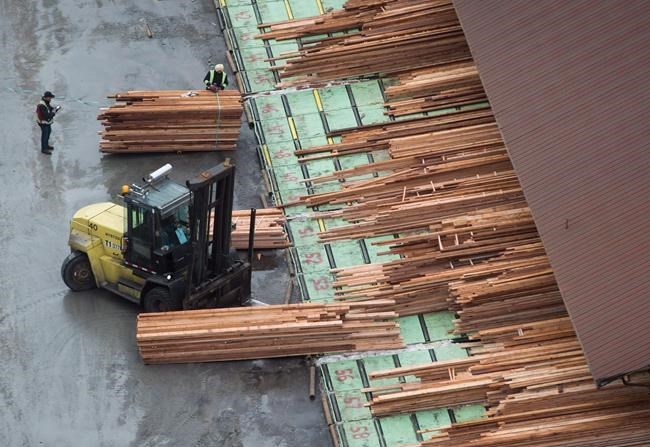 The B.C. Liberals won the 2009 election partly because the world economy was collapsing, and frightened voters had enough uncertainty in their lives without taking on more by changing governments.
The B.C. Liberals won the 2009 election partly because the world economy was collapsing, and frightened voters had enough uncertainty in their lives without taking on more by changing governments.
This time around, B.C. got a jolt just before Wednesday’s debate started, with news the U.S. is imposing an average 20 per cent duty on incoming Canadian softwood lumber. Liberal Leader Christy Clark wasted no time in highlighting the uncertainty that creates during the leaders’ debate.
She asked viewers to ponder who has the skills to protect jobs tied to that $4.6 billion a year worth of trade. She and NDP Leader John Horgan clashed several times, accusing each other of not caring enough about the issue.
Clark rapped him for never asking about it in question period. (A very fine point. He didn’t, but there was lots of talk about softwood elsewhere in debates.)
Horgan responded that it was “a bit rich,” coming from someone “who’s been absent for 21Ú2 years” from the lumber argument. Clark retaliated by citing Steelworkers’ support for the NDP. “You’ve taken the biggest political donation in B.C. history from the guys down in Pittsburgh, the same people that stood beside Donald Trump when he called our B.C. forest workers a disgrace.”
Later on, Clark said she’d stand “toe to toe. I’m going to be tough. I will be strong. I will be calm and resilient.”
Horgan told viewers: “I’ll make sure I’m in your corner … fighting for a deal.”
All of this would make you think the premier of B.C. has a lot more to do with U.S. lumber negotiations than is really the case.
It’s an international dispute, handled by federal governments. More accurately, by vast teams of lawyers on both sides of the border. B.C. has burned through eight premiers during various lumber wars going back to the 1980s.
They played roles to varying degrees, but none of them made much of a personal impact.
If a politician is going to make a difference, it’s going to be the president or the prime minister. B.C. is the largest provincial player, but the Canadian side has many players, and it’s the federal government calling the plays.
A B.C. premier does have a role to play, though. It’s not fighting, or standing toe to toe, or staring down U.S. President Donald Trump.
It’s coping with the fallout, by designing programs needed in communities when the lumber trade slacks off and the mills start to curtail production.
It’s not as dramatic as the tough talk, which is why it didn’t come up in the debate. But all the fighting talk amounts to just paying millions more to lawyers to keep up the struggle. The real job is to mind the store, find new markets to reduce reliance on the U.S. and maintain the array of support programs for rural and forest-dependent communities.
The toughest Canadian move made since the duty was announced was Clark’s positioning on barring U.S. thermal-coal movements through B.C. But that’s not a move at all, because she has no power to make it. It’s just an idea she pitched to Prime Minister Justin Trudeau, who is calling the shots.
Just So You Know: Here’s a partial list of the other points from the debate on which there is profound disagreement and/or confusion:
• Whether B.C. children lost a generation of educational opportunity and were cheated out of an education and deserve an apology, or are No. 1 internationally in reading, two in science, sixth in math and actually doing quite well.
• What to call the Green leader: Dr.? Mr.? Andrew?
• Why it’s OK for Weaver to say something, but not OK for Horgan to say it.
• Whether economists can truly be independent if they are paid to do a hatchet job on an opponent’s platform.
• Whether Family Day should be the second Monday (caving in to the ski-industry lobby based on a few bogus clicks of an online survey), or the third Monday in February (like neighbouring jurisdictions, even if it means longer lift lines).
• The seating capacity of the Commodore Ballroom in Vancouver.



